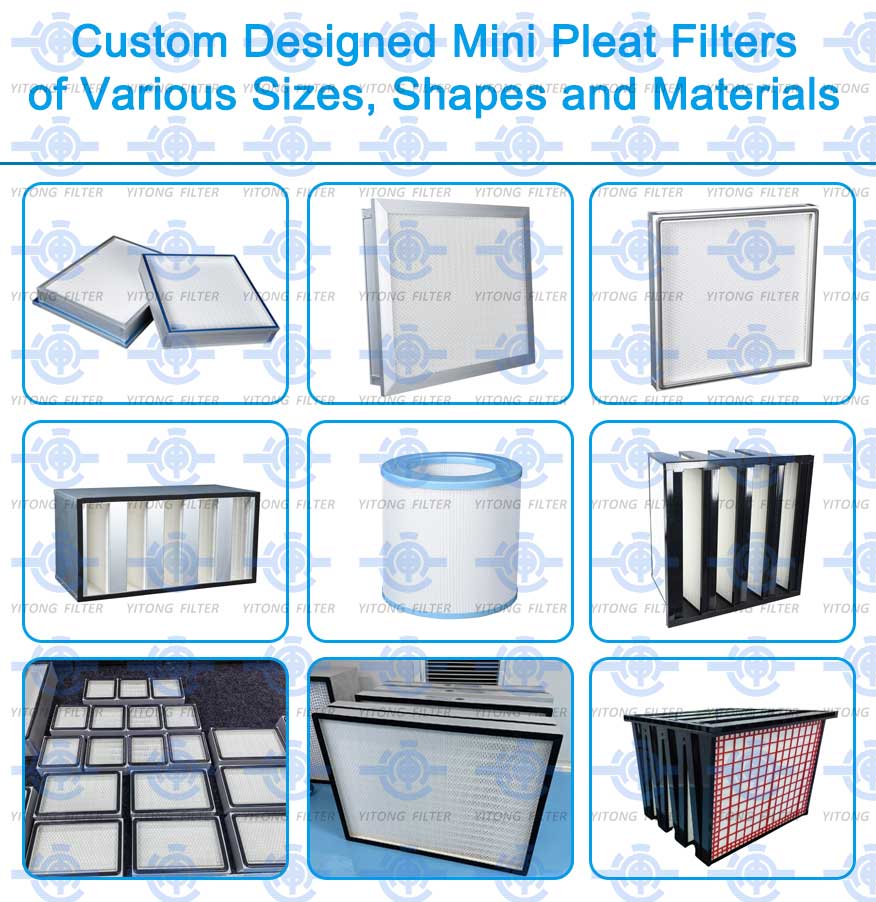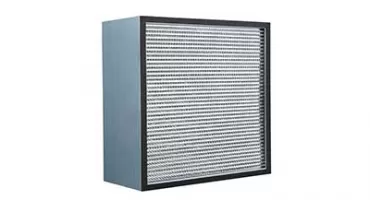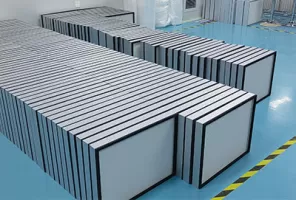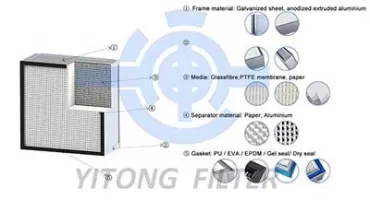 March 18, 2024
March 18, 2024
In today's fast-paced world, where pollution levels are soaring and environmental hazards are on the rise, it's becoming increasingly essential to safeguard our indoor air quality. Amidst this concern, HEPA (High Efficiency Particulate Air) filters have emerged as a powerful tool in the battle against airborne contaminants. But why exactly do we need a HEPA filter, especially in commercial settings? Let's delve into the details.

1. Superior Filtration Efficiency:
HEPA filters are renowned for their exceptional ability to trap microscopic particles, including dust, pollen, mold spores, pet dander, and even bacteria and viruses. With a minimum efficiency of 99.97% for particles as small as 0.3 microns, HEPA filters ensure that the air circulating in commercial spaces remains clean and healthy for occupants.
2. Enhanced Indoor Air Quality:
Poor indoor air quality can lead to various health issues, ranging from allergies and respiratory problems to more severe conditions like asthma and lung infections. By effectively removing harmful pollutants from the air, HEPA filters contribute significantly to maintaining a healthier indoor environment, thereby reducing the risk of associated health concerns among employees, customers, and visitors.
3. Compliance with Regulatory Standards:
Many industries, such as healthcare, pharmaceuticals, and manufacturing, are subject to stringent regulatory standards concerning air quality and cleanliness. Utilizing HEPA filters in commercial settings ensures compliance with these regulations, thereby safeguarding both the health of individuals and the reputation of businesses.
4. Allergen and Pathogen Control:
In environments where allergens and pathogens pose a significant risk, such as hospitals, laboratories, and food processing facilities, HEPA filters play a crucial role in controlling the spread of airborne contaminants. By capturing allergens and pathogens before they can circulate and cause harm, HEPA filters help maintain a sterile and safe environment for sensitive processes and vulnerable individuals.
5. Odor Elimination:
In addition to capturing particulate matter, HEPA filters can also help eliminate unpleasant odors from the air. This is particularly beneficial in commercial settings where strong odors, whether from chemicals, food, or other sources, can affect the comfort and well-being of occupants. By trapping odor-causing particles, HEPA filters contribute to a more pleasant and inviting indoor atmosphere.
6. Increased Productivity and Comfort:
Cleaner air isn't just beneficial for health; it also has a positive impact on productivity and comfort in commercial spaces. By reducing the concentration of airborne pollutants, HEPA filters create a more pleasant and conducive working environment, allowing employees to focus better and perform at their best.
7. Long-Term Cost Savings:
While the initial investment in HEPA filtration systems may seem significant, the long-term benefits far outweigh the costs. By prolonging the lifespan of HVAC equipment, reducing maintenance requirements, and lowering energy consumption, HEPA filters can lead to substantial cost savings for businesses over time.
In conclusion, the need for HEPA filters in commercial settings is undeniable. From improving indoor air quality and ensuring regulatory compliance to enhancing productivity and reducing long-term costs, the benefits of HEPA filtration are vast and multifaceted. As businesses prioritize the well-being of their employees, customers, and operations, investing in HEPA filters emerges as a strategic and indispensable choice in today's increasingly polluted world.
 Jun. 08, 2023
Separator HEPA Filters An Effective Solution for Air Filtration
Jun. 08, 2023
Separator HEPA Filters An Effective Solution for Air Filtration
 Feb. 13, 2025
H14 Filter: Everything You Need to Know
Feb. 13, 2025
H14 Filter: Everything You Need to Know
 Feb. 20, 2024
The Importance of HEPA Filters in the Pharmaceutical Industry
Feb. 20, 2024
The Importance of HEPA Filters in the Pharmaceutical Industry

